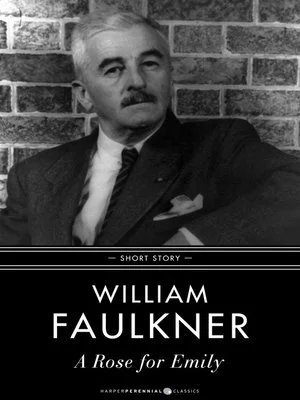Faulkner and Funerals
I was genuinely moved at a funeral this week when the deceased’s widow brought up William Faulkner. I would have been moved anyway, her husband having died much too young and in the sudden sort of way that left no time for goodbyes, but the literary reference caught me off guard.
This woman is strong and together and in many moments of her remarks seemed so composed and matter of fact that you’d have had no idea she’d just lost her husband. But when she, in the most raw sort of way that only the grieving can, finally broke down over how hard it is, how sad she was to put his body in the ground and never get to look at it or touch it again, I wept. I wept for her and her children, for all of us. I wept because even the promise of heaven does not soften the blow of being separated from a loved one for the next several decades. How do you learn to do life without the person you do life with? Where is the comfort in that if the comfort doesn’t come until you yourself have left the earth? It’s a question I’ve never been able to answer.
It’s like that story, the widow said. A Rose For Emily. She reminded us of the basic plot, which is that Emily keeps the deceased body of the man she loves, in her bed, and even gets in the bed with the body, a fact that’s discovered upon her death. It’s such a classic, frequently-read story. As early as high school I was scrunching my nose in disgust over the whole icky idea. It disturbed me, frankly. It had disturbed the widow, too, except here she was now admitting she finally understood why someone would do it. And the thought of closing the casket and leaving him in the earth was so much worse than taking him home with her, as she wished she could.
Honestly, it’s the first time I’ve felt any amount of affection for the story. The first time it struck me as something tragic and almost beautiful. It’s the first time I’ve left a funeral craving Faulkner.

